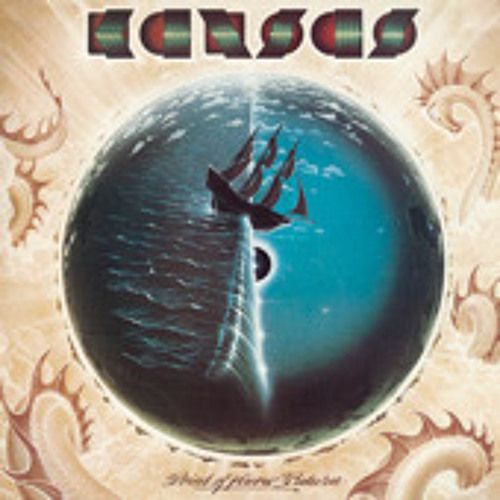09. Kansas - Point of Know Return (1977)

Kansas were in many ways the definitive ‘American progressive rock band’ over their first four albums, largely because their core sound was a combination of classic prog influences and a tinge of traditional American roots rock (boogie, hard rock etc) as well as the traditional prog scene from across the pond. This certainly made the band a unique listen with their somewhat hybrid sound, which stood out from the other American prog bands that were overly obsessed with relying on the classic prog lines of their British peers. The enduring feature of the band and their signature touch was
Robby Steinhardt, whose violin was to the band was what the flute was to
Jethro Tull.
The band’s first four albums were progressive rock albums of real quality, but it wasn’t until the recording of
Leftoverture and its monster hit in “Carry on Wayward Son” the song that brought the band to public attention, that the band hit the super league stakes of arena rock. This in turn directed the band into a more streamlined sound which becomes more evident on the inaccurately named
Point of Know Return. What’s kind of special about
Point of Know Return, is that It was the first album where the band were able to go into the studio without any pressure to secure a record deal.
On the
Point of Know Return gone are the lengthy compositions but the prog-suite tracks do hang around, but by and large the longer style tracks from the previous albums are replaced with shorter tracks. The complexity of the band remains and they do self-indulge with their progressive leanings on symphonic prog tracks like “Paradox” the almost
Emerson, Lake & Palmer sounding instrumental “The Spider” the prog rock-meets-hard rock of “”Portrait (He Knew)” with the finest two being “Closet Chronicles” and “Hopelessly Human”. Overall though the band are displaying a conscious drive towards a more streamlined sound that would take them into the more lucrative realms of AOR territory and this drive becomes evident on material like the album opener the eponymous “Point of Know Return” which is a typical upbeat
Steve Walsh track with a strong melodic resonance to it. Robbie Steinhardt the violin player gets one sole vocal lead on the complex driven arena rock track “Lightning’s Hand” but the most accomplished AOR track on the album is “Sparks of the Tempest” one of the purest and best AOR tracks that the band ever put out and the song outro is so fricking cool sounding. “Nobody’s Home” is a late album piano-backed ballad and is a delightful song with not too many poppy jangles. Finally the album’s most famous track needs no introduction “Dust in the Wind” one of the most iconic singles form its era, a timeless classic that still sounds as fresh today as it did way back then.
Like with most of the bands that will be featured in this journal, keyboards/synthesizers play a heavy part in proceedings and they were certainly the showpiece instruments for Kansas and were orchestrated by the band’s two leader’s in Steve Walsh principal vocalist/writer (upbeat tracks) and
Kerry Livgren writer (downbeat and ballad tracks) in fact the only negative here is that this comes at the expense of guitarist
Rich Williams who doesn’t get the chance to break free as he had done on some of the earlier albums like
Masque.
Certain reviewers critique the band for their uneasy alliance between the prog sound that they were born with and the more streamlined and even pop induced sound that they were leaning towards and for that reason an album like
Point of Know Return splits opinions more than any other Kansas album, as this is the album where this battle between the band’s identity takes place. For example the album yet again demonstrates the band’s idiosyncratic qualities and the pseudo-intellectual lyrics that they always found hard to do without and they also demonstrate their proggy complexity, but there is also a clear drive to an arena rock sound as evidenced on the album. Personally though I think it’s one of the band’s finest outings if not quite my favourite, that would probably go to two of their earlier efforts, but nevertheless
Point of Know Return is a vital listen.
Finally I grew up in a musical culture here in the UK that dismissed bands like Kansas as ‘Faceless Midwestern American Rock’ that should be avoided at all costs. I discovered Kansas not long after I discovered
Styx in the 1980s and yes they may have been faceless (hiding behind beards) but hell this band could play and their 1970s discography is one of the most consistent and finest by any American band, and their album covers among the most impressive as well.